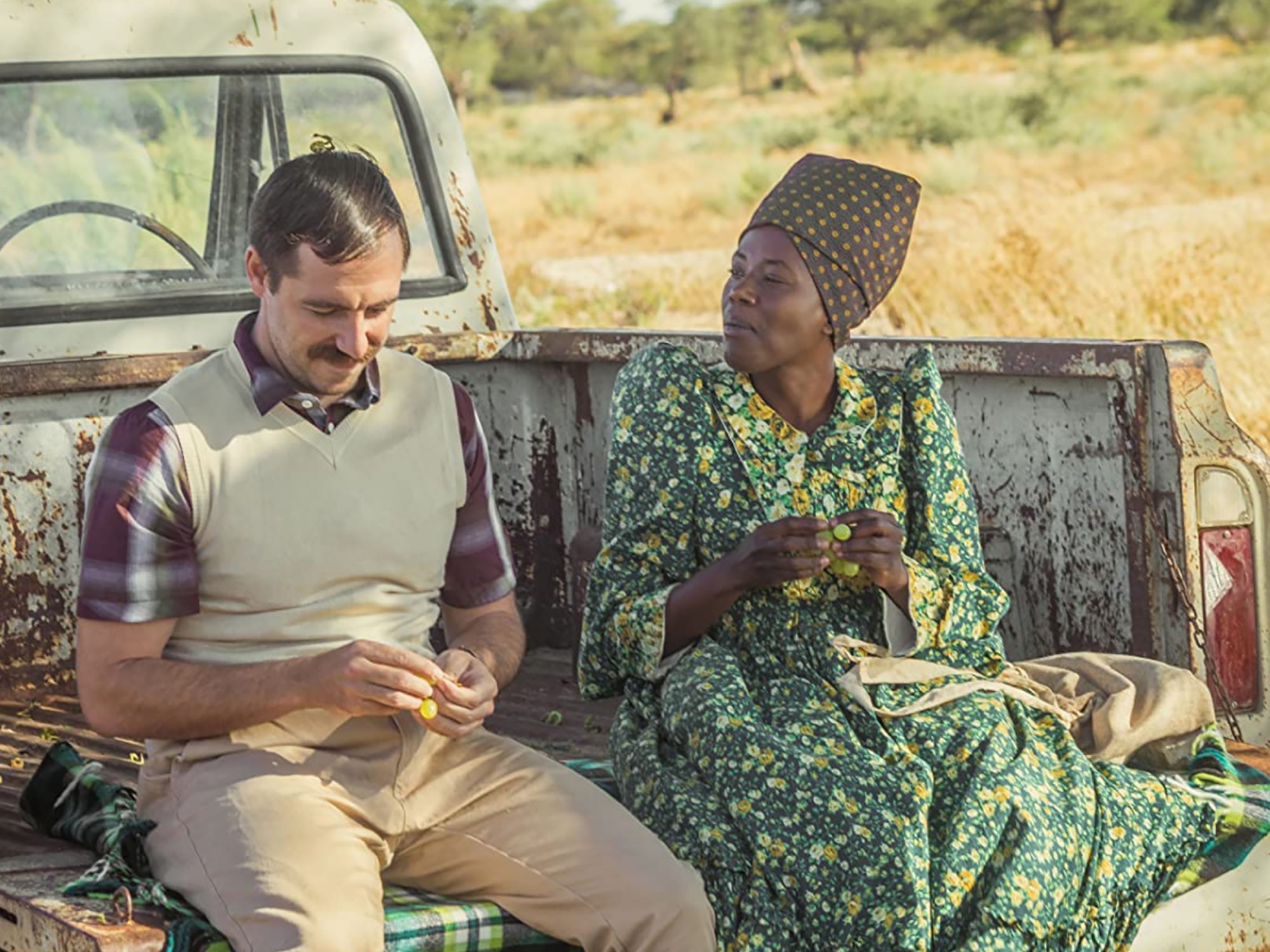
- Golden Globe Awards
The White Line (Namibia)
Slavery did not end with Lincoln, the American Civil War, new laws proclaiming the so-called freedom of Black people or the questionable legal description of “separate but equal”. Not in the US, and certainly not in the nations of Southern Africa where Apartheid was not outlawed until 1990.
At the beginning of The White Line, a film produced and directed by Desiree Kahikopo-Meifret, an Afrikaans-speaking couple is watching the ceremony of Namibia’s proclamation of independence on TV. The wife worries aloud about the consequences for white people, now that the Blacks have equal rights, and expresses fears of how dangerous life in that country will become for the “ruling class.” The film is framed by the events of that day, and as someone rings the doorbell, the picture fades back into 1963. Namibia was still called Southwest Africa then. We see two young Black women in a rural village. Their traditional garb is reminiscent of a Laura Ashley-esque getup. They wear headscarves and grind the grains for their porridge on a stone. Their shacks look like the slave quarters of American indentured servants during the antebellum period. The only difference is that their meager homes are not located on the grounds of a plantation but in a village far from the next city.
One of the women is Sylvia, played by Girley Jazama. She is a domestic working for blonde and blue-eyed Anne-Marie (Sunet Van Wyk), an Afrikaner woman and the personification of Hitler’s ideal Aryan. Anne-Marie is the worst kind of racist, the sort who puts down her maid in the third person in front of her guests. She is a walking lexicon of racial slurs, calls Sylvia (and other Blacks) “Kaffir”, a derogatory term that the Dutch used in those regions and that is equal to the n-word. In her world of white privilege, indoor plumbing and creature comforts, people of color are no more than wild animals and only understand a good beating.
The story becomes complicated when Anne-Marie’s gentle brother Pieter (Jan-Baren Scheepers), a policeman, also hires Sylvia and ends up falling in love with her. He wins her over by a secret exchange of letters. Theirs is a forbidden love, not just because society frowns upon mixed-race relationships but because they are legally prohibited by the Apartheid government.
Says Michael Pulse, the screenwriter and producer, “Part of this is taken from the history of my mom and her mom before that because they were both maids, so I got to hear about what they went through as casual workers.”
Director Kahikopo-Meifret and lead actress Jazama collaborated on the screenplay, which is based on an idea by the director. “I think it was easy for me to write because it had a lot of relatable issues that I have gone through that still go on in Namibia,” Pulse told audiences at the FESPACO Pan-African Film Festival in Burkina Faso, where the movie premiered. What informed his shaping of the character of the racist Anna-Marie was his own background as a Namibian. To him, she is a product of her upbringing and her circumstances in a society that never questioned segregation.
A plot twist at the end comes most unexpectedly when the story returns as a continuation to the start of the film. And overall, the racial politics are mostly there to serve a tender love story. The White Line won numerous awards at film festivals across the African continent.

